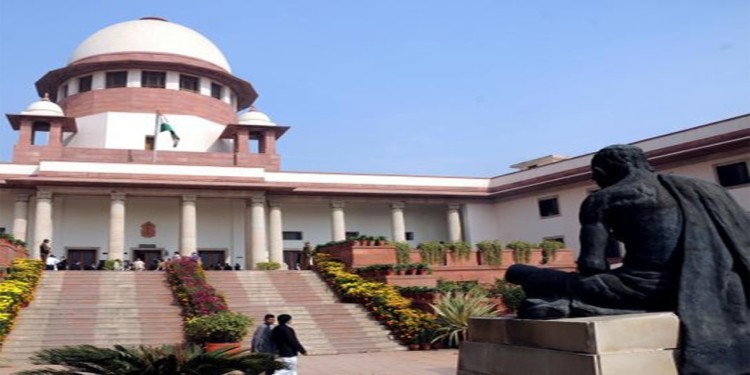In news–India’s Apex Court has recently agreed to examine a PIL challenging changes made to the right to freedom of speech and expression by the first amendment to the Constitution in 1951,
What are the challenges?
- In his plea, the petitioner, Senior Advocate K Radhakrishnan, contended that the amendment damages the basic structure doctrine. He objected to the following insertions-
- Section 3(1) of the 1951 Amending Act substituted original Clause (2) of Article 19 – dealing with reasonable restrictions on the freedom of speech and expression guaranteed under Article 19(1)(a) – with a new Clause (2), which contained “two objectionable insertions” allowing restrictions also “in the interest of public order” and “in relation to incitement to an offence”.
- Section 3 (2) of the amending Act effected validation of certain laws even if they took away or abridged the right to freedom of speech and expression.
- The petition contended that these two insertions protect Sections 124A (sedition), 153A (promoting enmity between different groups on grounds of religion, race, place of birth, residence, language), 295A (deliberate and malicious acts, intended to outrage religious feelings of any class by insulting its religion or religious beliefs) and 505 (statements conducing to public mischief) of the Indian Penal Code “from the vice of unconstitutionality”.
- The petition further said that the two questionable expressions inserted unduly abridge the fundamental right under Article 19 (1)(a).
- This undue abridgement “does not advance or sub serve any constitutional objectives” but “damages, inter alia democracy and republicanism and supremacy of the Constitution.
- The amendment also neglects national security by dropping the expression ‘tends to overthrow the State’.
- The glaring omission of the expression ‘tends to overthrow the State’ raises grave concern in the context of the dangers posed to the concept of secular democratic republic by radicalism, terrorism and religious fundamentalism.
- The plea urged the court to declare Section 3 (1)(a) and 3 (2) of the First Amendment “beyond the amending power of Parliament” and void since the “same damage the basic or essential features of the Constitution and destroy its basic structure”.
What is the 1st Amendment act 1951?
- The Constitution (First Amendment) Act, 1951, enacted in 1951, made several changes to the Fundamental Rights provisions of the Indian constitution.
- The First Amendment Act amended articles 15, 19, 85, 87, 174, 176, 341, 342, 372 and 376.
- It added the 9th Schedule to Indian constitution that contains a list of central and state laws which cannot be challenged in courts.
- It also inserted articles 31A and 31B.
- In total, it provided means to restrict freedom of speech and expression, validation of zamindari abolition laws, and clarified that the right to equality does not bar the enactment of laws which provide “special consideration” for weaker sections of society.














